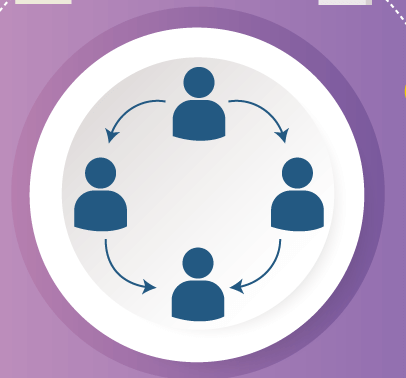Features of An Effective Ticket System
Facilitates Updates
It should offer advanced features such as real-time updates, email notifications, etc., which can help you save time by notifying you whenever there is any new activity, such as new messages or replies.
Knowledge Base for Self-service
You want every tool possible available so people can solve their problems instead of spending time calling, emailing, or chatting. The ticket system incorporates a tool that customers can figure out solutions without support from an agent. An effective self-service knowledge base should be a source of information for all your users. It should also involve submitting questions and answers so that you can share your experience with others.

Automated service requests
The automated service requests feature allows your software to create automatically, assign, or update tickets in response to specific events. Here are a few examples:
- Automatically create tickets when new users register for your website. It ensures that all new users have their questions addressed before using your product or service.
- Automatically create tickets when certain types of events occur, for example, when a user adds items to a shopping cart.
Contract and Customer Management
You have to keep track of your contacts, customers, and products. It's easy to lose track of who has access to what and when they're allowed. However, it helps avoid mistakes costing you time and money.
Team Collaboration Tools and Functions
Ticketing systems can allow for team collaboration and communication. For example, a help desk will enable users to create and assign tickets to other team members.
A sound ticket system provides features that allow you to identify tickets assigned to each team member to know who's working on what at any given time. It is beneficial when multiple people work on the same project or task.
Incident and Problem Management
Incident management restores a regular service operation as quickly as possible and minimizes the adverse impact on business operations. Problem management eliminates root causes and prevents recurrence.
Typically, an incident lifecycle will include some or all of these stages: preparation, detection, initiation, escalation/handling/resolution, and closure. From a more business perspective, you must assign ownership for each step within the process to know who's responsible for what at any given time.
Email-enabled Tickets with Customized-ticket Workflow
Email-enabled tickets allow you to respond directly to customer inquiries, eliminating the need for back-and-forth communication via other channels. Furthermore, they provide an easy way for customers to communicate their issues. It is essential if you have users who are not comfortable on the phone or don't speak English since email allows them to communicate with your support staff without any language barriers.
Easy Access
Your customers shouldn't have trouble finding their way around the ticket system when they need help from you. Ensure there are clear instructions on how they should use it and keep them up-to-date on any changes in the process.
Customizable
Your tool should be customizable to work precisely how you need it to work, now and in the future. Customized ticket workflows will allow you to set rules around replies by your team members and how they should respond based on past interactions with a specific user. It will enable the right person to handle each inquiry with minimal effort at the right time.
Conclusion
A sound ticket system is an essential part of any business, whether a small shop or a big corporation. It provides customers with a way to report problems or request help from the company. They are automated so that anyone can use them without much training or experience. Anyone can create a ticket system for their business, regardless of its size.
The first thing to note is that it should be easy for your users to find their support tickets and get answers from your agents. You must provide a way for customers to submit tickets directly from applications or websites when they run into problems. Lastly, ensure fast responses when someone raises an issue through the system, and your replies are clear and helpful to avoid further questions.